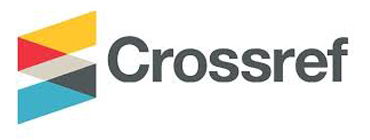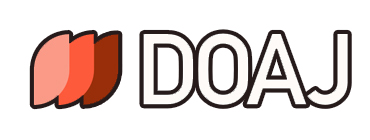PRINCIPAL’S LEADERSHIP OF MORAL AND VALUE-BASED INDONESIA’S 2030 VISION
Abstract
This study purpose of describing the importance of the principal's ability to understand the values develop in the life of the community around the school and be aware of the dynamics of moral development of society in general in order to achieve Indonesia's 2030 vision. This study uses a literature study method and through observation of the lives of people around schools at Banten Province, Indonesia. Findings this study is the majority of principals did not understand optimally about the values of life that grow and develop in the community around the school they managed and did not realize the dynamics of the development of moral society in general. Research Implications is all principals in Indonesia should be more severe in understanding the values of life that develop in the community around the school and be more aware of the dynamics of community moral development in general, which has an impact on the sustainability of education programs in schools that he led. Practical Implications is If the principal does not do these two things (Leadership of Moral and Value), then Indonesia's 2030 Vision that we aspire to is challenging to
Full Text:
PDFReferences
Achmad Sanusi. (2009). Self Reflection 80 Years, Bandung: Publisher Nusantara Islamic University Postgraduate Program.
Achmad Sanusi. (2009). Spiral Dynamic, Bandung: Publisher Nusantara Islamic University Postgraduate Program, p. 65.
Ahmad Zainal Hamdi. (2005). "Local Islam: The Space of Parable Universality and Locality", Journal of Islamic Studies and Ulumuna Society IAIN Mataram, VolumeIX, 15th Edition, Number 1, January-June 2005, p. 104-123
Dadi Permadi & Daeng Arifin, (2010). Transformational Leadership of Principals and Committees, Bandung: Publisher PT. Sarana Panca Karya Nusa.
Danah Zohar & Ian Marshall, (2000). SPIRITUAL INTELLIGENCE: The Ultimate Intelligence, Bloomsbury Publishing, London.
Daniel Goleman, et al. (2002). THE NEW LEADERSHIP: Transforming The Art Leadership into The Science of Results, Harvard Business School Press, United States.
Diane Lapp, Hilary Bender, Stephan Ellenwood, (1975). TEACHING AND LEARNING; Philosophical, Psychological, Curricular Applications, Macmilan Publishing, New York.
E. Mulyasa, (2007). Becoming a Professional Principal, Publisher of PT Remaja Rosdakarya, Bandung.
Endang Komara in his writing about "Post-Reformation Indonesian Political System" in Journal Socio Didaktika, Vol. 2, Number 2, December 2015 p. 117-124.
Hartarto Sastrosoenarto. (2006). INDUSTRIALIZATION AND DEVELOPMENT OF AGRICULTURAL SECTORS AND SERVICES TOWARDS INDONESIA’S 2030 VISION, Publisher PT Gramedia Pustaka Utama, Jakarta.
Hendraman, Revolution of Principal Performance, Publisher Index, Jakarta, 2015, p. 83-84.
John N G, (2008). DIM SUM LEADERSHIP: Tips for Busy Executives, Published by ARMOUR Publishing, Singapore.
KOMPAS, Globalization and Indonesia 2030, Saturday, May 20, 2006, page 34.
Susan Smith Kuczmarski & Thomas D. Kuczmarski, (1995). Values-Based LEADERSHIP: REBULDING, EMPLOYEE, COMMITMENT, PERFORMANCE & PRODUCTIVITY, Englewood Cliffs, New Jersey.
Michele Borba (2001). BUILDING MORAL INTELLIGENCE: The Even Essential Virtues That Teach Kids to Do the Right Thing, Jossey-Bass Publihing, San Francisco.
Mutiani in his writings on "Reactualization of Pancasila Value Implementation for Indonesian Democracy" (Sosiodiaktika Journal, Volume 2, No. 2 December 2015 pp. 16-183, UIN Jakarta, Indonesia
Nanang Fattah, (2016). Value-Based Strategic Management, Bandung, Publisher Remaja Rosdakarya.
Thomas J. Sergiovanni, (1992). MORAL LEADERSHIP: Getting to The Heart of School Improvement, Jossey-Bass Publishers, San Francisco, California.
Toto Suharto in his writings on "Ideas of Muhammadiyah and NU Education as Portrait of Moderate Islamic Education in Indonesia" in the Journal of Islamic Studies in ISLAMICA, Volume 9, Number 1, September 2014, p. 81-109, Postgraduate of UIN Sunan Ampel Surabaya, Indonesia.
DOI: http://dx.doi.org/10.30829/tar.v27i1.605
Refbacks
- There are currently no refbacks.

Jurnal Tarbiyah by UIN Sumatera Utara Medan is licensed under a Creative Commons Attribution-NonCommercial-ShareAlike 4.0 International License.
Based on a work at http://jurnaltarbiyah.uinsu.ac.id/index.php/tarbiyah.
Permissions beyond the scope of this license may be available at http://jurnaltarbiyah.uinsu.ac.id/index.php/tarbiyah/about/submissions#copyrightNotice.
















